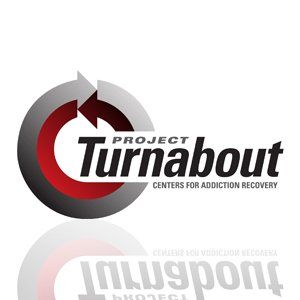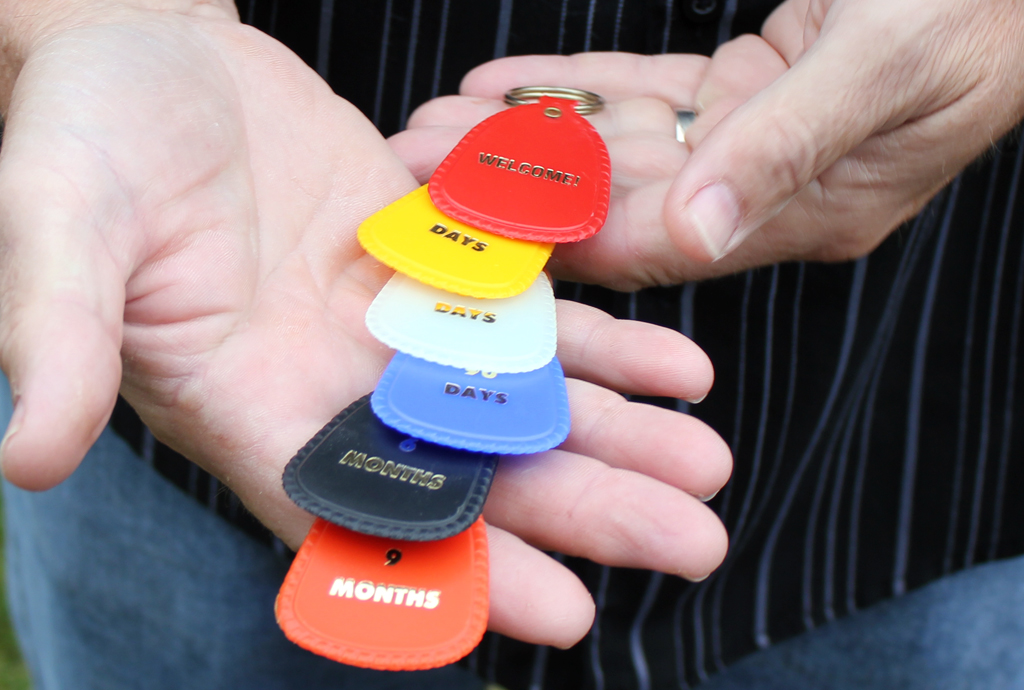Inpatient Gambling Treatment Minnesota
- Best Inpatient Gambling Addiction Recovery Centers
- Project Turnabout
- Treatment Facilities - National Council On Problem Gambling
- Gambling Inpatient Treatment Centers
Substance abuse inpatient treatment programs
With support and assistance, you can recover from substance abuse and live a fuller life. You’ll recover physically, psychologically, interpersonally and spiritually. Our services includes assessment and referral, medically supervised withdrawal management, inpatient-to-outpatient treatment, family counseling and aftercare.
Inpatient Drug Rehab Centers in Edina, MN. Gambling Clinic of Minnesota. Alcoholism Information & Treatment Centers Gambling Addiction-Information & Treatment. Drug Rehabs in Minnesota by Service Setting. Hospital inpatient (4) Inpatient drug and alcohol treatment programs located within hospitals in Minnesota. Residential (122) Residential rehab provides 24-hour care in a setting where the focus is helping individuals achieve and maintain recovery from addiction. Outpatient (256) Outpatient programs can help those looking to recover from drugs. Treatment offerings. Mayo Clinic's continuum of addiction treatment services includes a state-of-the-art 30-day intensive program with on-site residence. In this highly confidential and professional setting, patients form a small community and receive 24/7 support in establishing their sobriety and developing recovery skills. The listing contains Inpatient, Residential and Intensive Outpatient treatment centers who have voluntarily applied to be listed on the NCPG website. The directory is not a complete listing of all problem gambling treatment centers, but solely a listing of those Inpatient, Residential and Intensive Outpatient treatment centers that have been. Inpatient Gambling Treatment Minnesota, roulette de pastore contre metz, big casino meaning jimmy eat world, texas holdem poker t-shirts.
Inpatient treatment for substance abuse
Withdrawal management and medical stabilization are physician-supervised and include nursing care, psychological assessment, a physical exam and a psycho-social interview. We collect needed information from the referral source, family members and concerned individuals to develop a treatment plan, if necessary. Many clients transfer to Lodging Plus or outpatient care as the next step. Or you may be referred to programs in the community that meet your individual needs.
Lodging Plus programLodging plus is a residential treatment program with room and board in a supportive, supervised environment. This is an alternative to a traditional inpatient program. Typical length of stay is 21 to 28 days. The program includes a second phase with weekly group therapy sessions.
Chemical Dependency Treatment for Deaf and Hard of Hearing
The Minnesota Chemical Dependency Program for Deaf and Hard-of-Hearing Individuals is an inpatient substance abuse program located on the West Bank of University of Minnesota Medical Center.
Our program follows the Minnesota model, a 12-step philosophy and includes staff fluent in sign language and sensitive to deaf culture. We offer comprehensive assessment services, individual and group therapy in ASL, lectures, workshops, family therapy, occupational and recreational therapy, spirituality group, grief groups, men and women’s groups and aftercare planning. You can attend interpreted 12-step meetings within the hospital and community and an ASL meeting on the hospital campus.
Compulsive gambling program
Our highly qualified professionals with specific training for gambling issues help you understand and recover from compulsive gambling. The program includes individual and group therapy.
Information: 612-273-4429
Appointments: 612-672-2736
Referrals: 612-672-2736
Substance abuse outpatient treatment programs
Day and evening outpatient programs
Fairview Recovery Services and HealthEast Mental Health & Addiction Services offer several outpatient treatment options for people with substance use disorders. All of our programs focus on the patient as an individual, with treatment plans created around each person’s unique needs. Every patient begins by taking a Substance Use Assessment. After the assessment is completed, a licensed counselor will meet with you to discuss your treatment options.Information: 612-672-2736
Appointments: 612-672-2736
Referrals: 612-672-2736
Outpatient treatment
All of our programs are designed to help patients understand the negative effects of alcohol and/or drugs on their lives and relationships. Patients will work with their counselor to develop a personalized plan that outlines treatment goals. By working towards these goals, individuals will develop a positive self-image and learn the coping skills necessary to achieve and maintain recovery.
Our outpatient treatment programs include:

Intensive outpatient treatment
This program provides structure and accountability. Intensive outpatient provides nine hours of group therapy per week as well as individual counseling, education and family involvement.
Outpatient treatment
This program is a step down from intensive outpatient. Outpatient treatment provides 4-7 hours of group therapy per week as well as individual counseling, education and family involvement.
Recovery management
This program meets once per week for two hours. Clients develop their personalized Recovery Care Plan to assist them as they prepare to leave treatment and begin their lives in recovery.
Co-occurring outpatient groups
Clients who are dealing with both a substance use disorder and another mental health disorder, such as depression, anxiety or trauma, can benefit from working with a dual licensed therapist to address both disorders at once. In addition to the evidence based therapy and education provided in all of our programs, clients will learn how these disorders interact and develop skills to manage their symptoms without the use of alcohol or illicit drugs.
Best Inpatient Gambling Addiction Recovery Centers
Outpatient treatment options at Fairview
Outpatient treatment options at HealthEast
HealthEast offers a variety of outpatient services out of the St. Joseph’s location in St. Paul and the St. John’s location in Maplewood. Most of the programs are intensive outpatient treatment, which operates on three phases through the recovery maintenance aftercare program for approximately 108 hours total.
Fairview and M Health Recovery information or intake scheduling, call 612-672-2736 or refer through Epic.
HealthEast appointments, provider referrals and information call 651-232-3645.

Day outpatient – St. Joseph’s
Monday, Wednesday, Thursday, and Friday 9:30 a.m. – 12:30 p.m.
The program has three phases of treatment: (schedule can vary for each patient)
Phase 1 - 20 sessions, Monday-Thursday, 9:30 a.m. – 12:30 p.m.
Phase 2 - Eight sessions, two days per week, 9:30 a.m. – 12:30 p.m.
Phase 3 - Recovery maintenance program, one day per week, 12 weeks
Evening outpatient – St. Joseph’s and St. John’s
Project Turnabout
Monday, Tuesday, Wednesday and Thursday, 6 – 9 p.m.
The program has three phases of treatment (schedule can vary for each patient):
Phase 1 - 20 sessions, Monday-Thursday, 6 – 9 p.m.
Phase 2 - Eight sessions, two days per week, 6 – 9 p.m.
Phase 3 - Recovery maintenance program, one evening per week, 12 weeks
MICD outpatient – St. Joseph’s and St. John’s

St. Joseph’s: Monday, Tuesday, Wednesday, and Friday, 9:00 a.m. – noon
St. John’s: Monday, Tuesday, Wednesday, and Friday, 9:30 a.m. – 12:30 p.m.
The program is facilitated by dual-licensed counselors and has three phases of treatment (schedule can vary for each patient).
Phase 1 - 20 sessions, Monday-Wednesday, Friday, 9:00 a.m. – noon
Phase 2 - Eight sessions, two days per week, 9:00 a.m. – noon
Phase 3 - Recovery maintenance program, one day per week, 12 weeks
Service coordination - St. Joseph’s
Service coordination combines substance abuse outpatient program and case management for adults with substance use disorders. Care is facilitated by licensed alcohol and drug counselors (LADC) and promotes well-being through a holistic approach focusing on eight dimensions of wellness: emotional, social, physical, spiritual, financial, environmental, intellectual, and occupational.
Tuesdays and Thursdays, noon – 3:00 p.m.
Occasional sober recreational activities on Wednesdays
Recovery maintenance - St. Joseph’s
Treatment Facilities - National Council On Problem Gambling
A low-intensity treatment option that meets once a week and is for clients who could use the extra support after treatment. This program is also appropriate for clients who have had a slip and may not need a high-intensity program to get back on track, provided they have recently completed a higher level of addiction care.
Three options for group:
Tuesday, 9:30 a.m. – 12:30 p.m.; Thursday, 9:30 a.m. – 12:30 p.m., 6 – 8 p.m.
12 Weeks
Lodging Plus allows patients to reside in a supportive, supervised environment while participating in our substance use treatment program. Through treatment, patients come to understand the negative effects of alcohol and/or drugs on their life and relationships. We work with each patient on an individual level to build a positive self-image and develop the life skills necessary to achieve and maintain sobriety.
An Inpatient Treatment Program
Lodging Plus patients receive quality care for alcohol and/or drug use in a living environment that is conducive to their recovery. Our residents receive 30 hours of service per week, including group therapy, individual counseling, spiritual care and education sessions. Each patient is assigned to a primary counselor and therapy group for the duration of their stay. Shortly after admission to Lodging Plus, the patient will work with a counselor to develop a personalized treatment plan. This plan outlines treatment goals that, when reached, will determine the next steps in the recovery process. Lodging Plus is a tobacco, vaping, and e-cigarette free facility. Smoking cessation services and support are available as part of the program. The program partners with the University of Minnesota to offer research-based tried and true treatment models.
Continued Care for Successful Recovery
Establishing recovery takes time, and the length of time required is different for every patient. Our program offers services that extend beyond the residential stay to help maintain recovery after returning home. Lodging Plus may be the first step in the treatment process for some patients or the next step after another form of inpatient care for others. After finishing treatment at Lodging Plus, the care team and patient work together to decide what type of care and support will follow.
Ongoing Support
We offer several support options to patients and their families, both during and after treatment.
Concerned Persons Program
Family members are encouraged to participate in these weekly drop-in meetings at least once during treatment. There is no cost to attend.
Growth Group
This ongoing weekly support group is run by alumni facilitators. It is designed to offer continued support during the recovery process. Growth Group is free of charge and is open to those who have completed their primary treatment plan.
Alumni Association
The Alumni Association is available to patients and families who have participated in the chemical dependency program. They offer support for patients in all stages of the recovery process. Social events, trips and other activities related to recovery are also offered.
Most individuals who use alcohol or other drugs don’t think they have a serious problem. During Phase I, patients will:
- Learn comprehensive information about substance abuse disorders.
- Begin to understand the impact drug and/or alcohol use has had on their life.
- Determine what steps they must take to remain drug/alcohol free.
- Establish a recovery plan that will help them stay sober after leaving treatment.
Post-treatment support
Establishing recovery and maintaining sobriety takes time. Our treatment model ensures that our patients have the support they need to maintain a drug/alcohol free lifestyle after they finish treatment. Patients and counselors will work together to establish post-treatment goals and determine which level of care will provide the best support.
Our staff will also connect patients with resources in the community that support people learning to live without drugs or alcohol, including other Deaf/DeafBlind/Hard of Hearing individuals in recovery.
Family matters
Substance Abuse disorder affects the entire family. Family Week programming is available for all our patients enrolled in the Lodging Plus program. This program consists of family therapists providing support and guidance in communication with their family member. Language accessibility is provided for all our patients for clear and open communication. Our counselors help families understand chemical dependency and the role they play in the recovery process. This program is Monday through Thursday and family members are strongly encouraged to attend.
Gambling Inpatient Treatment Centers
We bring our experience and expertise with this underserved population and believe Deaf/DeafBlind/Hard-of-Hearing patients with substance use disorders should have equal access to quality treatment services.



